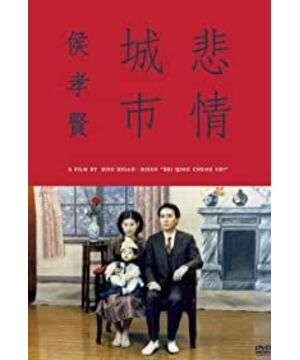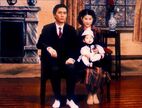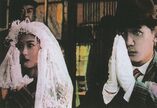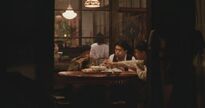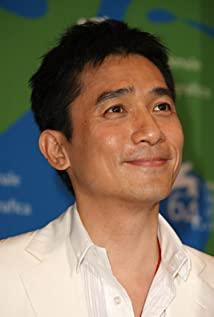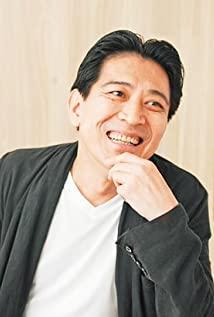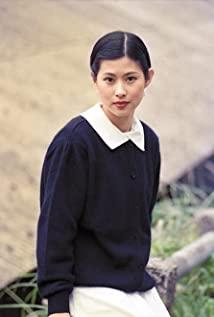One afternoon in early spring two years after Taiwan's recovery, Lin Jiangmai, a widow in her 40s, was selling illicit cigarettes on the streets of Taipei in order to support her son and daughter. Outside the Tianma Teahouse in Taiping Township, Taipei, she was stopped by several inspectors of the Tobacco Monopoly Bureau, and her cigarettes were confiscated. She was also fined and confiscated of all her money. Mrs. Lin knelt down and begged for mercy, demanding at least the return of the illicit cigarettes that had been taxed, but the inspectors refused. Due to the language barrier, the two sides pushed and shoved. During the conflict, Ms. Lin was injured by the inspector with the butt of a gun. The onlookers were instantly furious, but the inspector fired a warning shot but accidentally killed innocent citizens. Hundreds of angry people besieged the Taipei Police Station that night to no avail. After the national government took over Taiwan, it rampaged and looted, causing deep resentment among the people. In just a few days, the incident spread to the whole of Taiwan, and the situation quickly got out of control. The then-governor of Taiwan, Chen Cheng, pretended to negotiate with the masses, and at the same time put forward his own report to Jiang Gong, who was struggling in the civil war at the time, asking for reinforcements. Soon, the 21st Division of the National Army Reorganized Army, led by the division commander Liu Yuqing, and the 4th and 21st regiments of the military police rushed to Taiwan from Shanghai. After that, the island of Taiwan was dead silent, until the ice of Chiang Ching-kuo's tenure in the late 1980s finally melted away.
"Sorrowful City" directed by Hou Hsiao-hsien tells a story:
after Taiwan's liberation until the February 28 Incident, there was a family named Lin in Keelung. The eldest son Wenxiong presided over the family business and ran the restaurant, and later became involved in the entanglement between the third brother and the Shanghai-born gangster and died in the pub; the second son, Wen Sentong, went south with the Japanese army during the war and was silent; the third son Wenliang returned to Taiwan as an interpreter for the Japanese army during the war. At that time, he was already mentally ill. After he was normal, he was involved in the gang entanglements before February 28. After being framed and imprisoned, he was tortured. After being released from prison, he lost his mind again. Tolerance worked together and was arrested and died in prison. The members of the Lin family seem to have no direct entanglement with the February 28 incident, but they are all involved in the dispute without exception.
At the end of the film, after her husband Wenqing was arrested, his wife Kuanmei wrote to Wenxiong's daughter Axue: "Aqian has long teeth. He smiles very well, and his eyes look like the fourth uncle. Come to the house when you have time, Jiufen is getting colder, and the mango blossoms are blooming. The mountains are covered with white, like snow." It seems that the disputes in the world are irrelevant: the dead are gone, and the living have to pick up all the broken pieces, keep silent, and work hard Forward.
I heard a story a long time ago on the Weibei Plain in my hometown:
during the Xianfeng period in the late Qing Dynasty, the peasants in the wealthy Weibei Plain were overwhelmed by the burden of apportionment and resistance, and were later dismantled by the government. After the Taiping Heavenly Kingdom, the wealthy people in the south of the Yangtze River all became scorched earth, and the imperial court's food, salaries and military equipment were put on the northwest. At this time, the main force of the Qing army was transferred to the south in response to the Taiping Heavenly Kingdom, and in the Guanzhong area, the Han people lived together for a long time, and they fought with weapons. Finally, in the first year of Tongzhi (1862), the Hui rebels quickly spread to Ningxia and Gansu provinces, and by the end of June they captured the provincial capital Xi'an. In the sixth year of Tongzhi, Zuo Zongtang led the main force of the Hunan army into Shaanxi, Gansu and Ningxia, and the civil upheaval subsided.
The world is generally like this, but the story in the old people's mouth is far from being so easy. Earlier, because the Qing army went south, although most of the villages had self-organized "group training", they eventually returned to Han due to continuous armed fighting. By the time of the Hui people's uprising, they had looted their villages several times. Not to mention the large families would be unpredictable. However, the small tenant farmers were not spared, and several villages and towns in the Fushu Plain of Weibei were almost wiped out. When the Hunan Army counterattacked, they carried out revenge brutal massacres on the rebels, and the important town of Weibei, which had undergone a transformation, was once again covered with bones. After reading the books: in the eleventh year of Xianfeng (1861), the population of Shaanxi was 13.94 million, and in the fifth year of Guangxu (1879), it was reduced to 7.72 million.
When I was young, my grandfather also told a story:
at the end of the Qing Dynasty and the beginning of the Republic of China, the great-grandpa generation was a wealthy and wealthy family in Weibei, with a kind-hearted house and many long-term workers. Considerable family property and vast real estate. In addition to being able to help the village, the family has not forgotten to educate the younger children and support their studies. Later, warlords separated and bandits and refugees ravaged Guanzhong. Finally, one day, a large number of bandits stared at the grandfather. After the robbery, there was little left of the family business, and it could not be recovered in the end. Since then, the family has fallen into disarray. When the youth of the grandfather generation grew up in the red flag era, there were only a few mu of thin fields and a few old houses left. Unexpectedly, 49 years later, when divided into components, my grandfather escaped because he was not a landlord because of his poor family business. During the Cultural Revolution, there were not many scholars in the village. The grandfather who was educated and literate at the beginning became the only teacher in the only primary school in the village. In the neighboring villages, there are many primary schools that send their children to the grandfather to read and read. After several decades, the primary school was abolished, and the grandfather once again faced the loess and turned his back to the sky and the sun went down.
I experienced a story myself when I was a child:
As a family planner, I spent my childhood in the army compound in Beijing. I don't remember anything for a long time, only the impressions are just wandering around with my father. One night, my father took my mother and I to watch the movie in the auditorium of the Zonghou Cinema. It was night with bright lights, and there was a lot of noise in the east of the city, accompanied by fire and smoke. My curious father took my mother and I on bicycles to the east along the main road. First, we encountered panicked people and littered bicycles, then burning cars and buses, as well as debris all over the floor, and speeding ambulances. The car, the wounded and bloody crowd; finally, after hearing many sounds like firecrackers, my terrified father hurriedly took my mother and I all the way home, no more words to be said after that.
A few words of my nonsense
Hegel said very pessimistically: "We learn from history that man can never learn anything from history". Almost all eras were born out of suffering and blood. No matter how turbulent and anxious the people of that era were, from the point of view of the younger generation, everything seemed to have never happened after the passage of time. In our eyes, all their glory and regret are but a few lines or a page. They were mighty and failed and absurd and comical, and then they were in these lines and pages, and then they were gone. They too, like all of us, panicked and panicked. In the words of history, there is no glory, no conquest, no victory, no glory, and some are just regrets, regrets, and helplessness.
How many years have passed, the times have changed, the use has changed, the food has changed, and the days have also changed. People's feelings, including all the lovable, abominable, and abominable strengths and weaknesses, have not changed at all. People and feelings that can't be retained still can't be retained, and there will be no difference between the past and the current video and Feixin Tianya's neighbors; stupid choices are still stupid and irresponsible, not because Everyone sees Hu Zongxian's regret that "the sword is buried in the deep prison, the loyal soul surrounds the white cloud", so we won't repeat the mistakes of others; we won't be able to see the sweetheart in a donkey cart because of the slow ride in the past days. Now you can see the 747 transoceanic plane in just one night. What's the difference between lovers? People still have all their cuteness and loathing as human beings. The theory of evolution seems to have no effect in the "human heart".
When we say that we are but a wave in the sea of history, we may not even be a wave. The map of Zeguo Jiangshan's entry into the war, the life of the people, Leqiao Su. With the words of Jun Mo Dao and Hou Feng, one will succeed and ten thousand bones will die. The only thing that can make people optimistic is that people are human beings, even if the time is reversed, even if they cannot leave their names, there are always things that can impress themselves and others: such as kindness, persistence, and purity. For example, a family sitting in a cramped group photo in front of the camera, such as a grandfather who is facing the loess and back to the sky and working hard to farm, such as all the things in life that can't be quick and busy.
View more about A City of Sadness reviews


